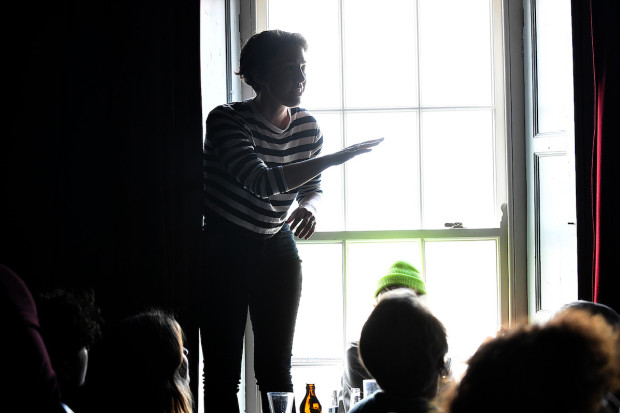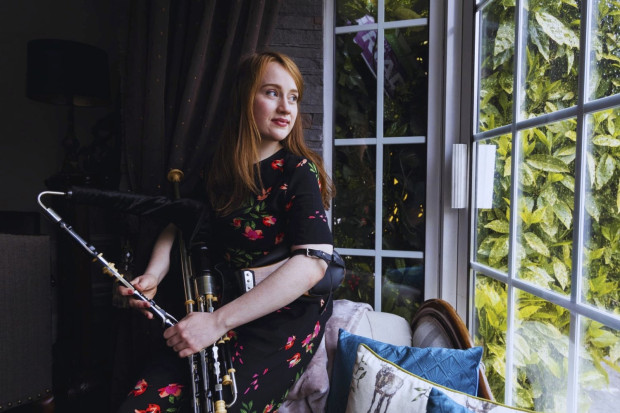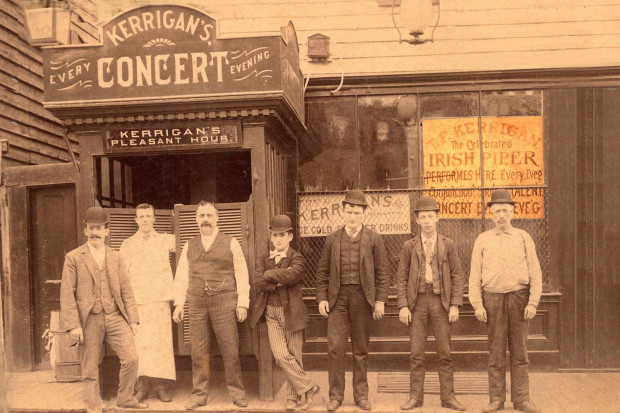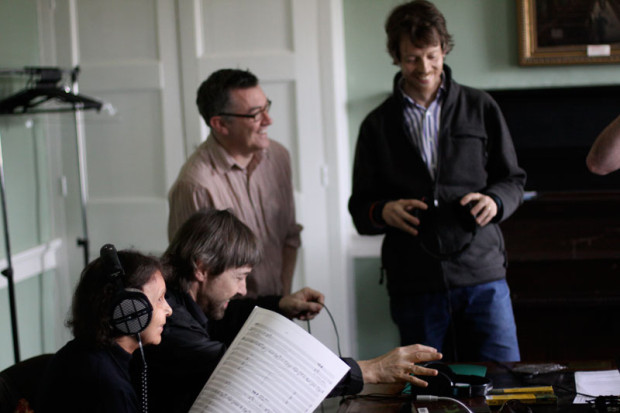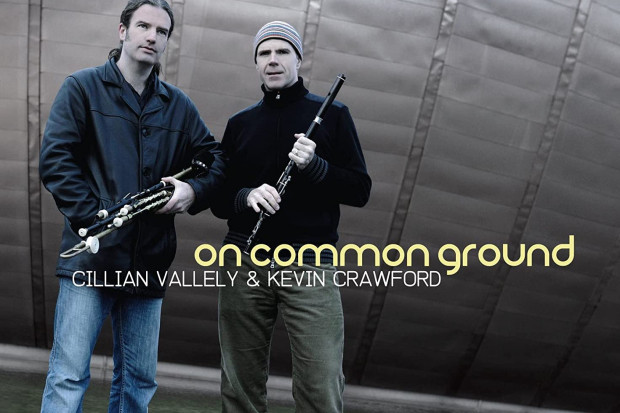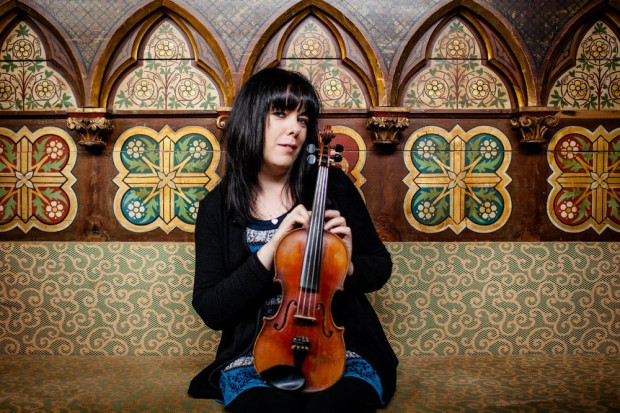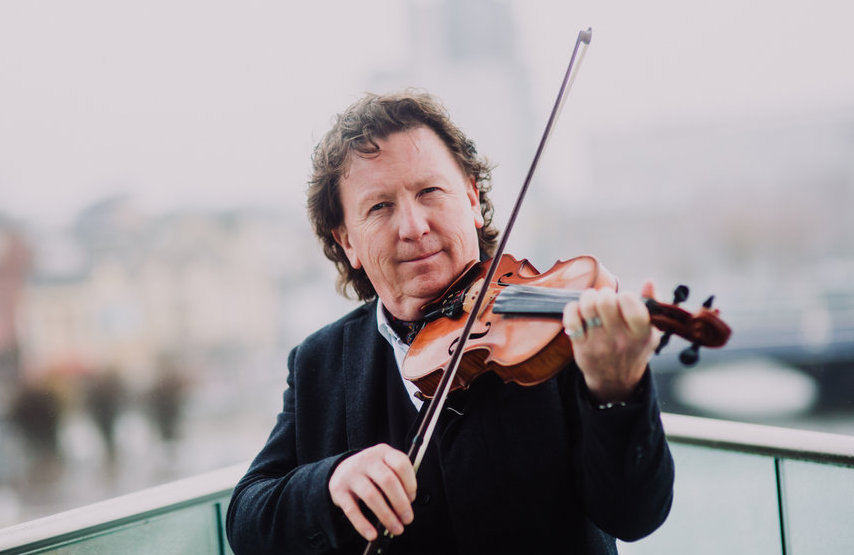
Frankie Gavin
Playing to His Strengths
A new Frankie Gavin album is always something of an event, and Port Éireann is a very welcome recording indeed, given his recent health issues. It’s a generous album of eighteen tracks, consisting mostly of reels and jigs, with a few hornpipes, an air and barndance included for variation. He is joined by the Galway piano player Catherine McHugh, an accompanist who has featured a lot recently both in concert and on other recordings (including those of Theresa O’Grady and Daithí Gormley). It’s similar to Gavin’s other solo recordings in being unfussy and straightforward in its approach – traditional tunes played traditionally, so to speak.
From the outset it is also clear that Gavin’s playing has lost none of its dynamism and attack, and he still has the rare ability to combine speed, lift and fine precision. For me, his reel playing has always best shown off his trademark energy and dazzling ornamentation and variation, and he plays to these strengths by kicking off with two reel sets. There is subtlety as well as power and intensity in these tunes, especially in his playing of ‘Paddy Fahey’s’, which gives a fresh perspective on this familiar reel. It’s also a masterclass on how to use technique as a way of shaping a track to continually build towards a climax: the sweeping bow-work, the chains of triplets, the detour down to the low octave, all have a purpose in an artistic vision of the reel as not just Paddy Fahey’s composition, but as archetypal of Gavin’s effusive personality as a performer. The closing reel of the long second set, ‘The Pride of the Bronx’, contrasts Gavin’s emblematic ultra-crisp and biting bow work on the lower strings in the first part with more dextrous finger ornamentation and variation in the turn.
These sets also exhibit an approach that has been noticeable since his 2001 recording Fierce Traditional (and which was also a trait of his second album with Alec Finn in 2018), where tunes are played in a lower register than the norm – sometimes Gavin shifts everything down one string (so that tunes centred on the D string are played a fifth lower), and at other times the tunes are just transposed down to another key, as on the opening ‘The Fox in the Town’. The approach seems to allow Gavin to get more cut, grit and depth in his tone through focusing on the lower strings. One of the downsides to this though is that the piano is more often in a lower register too, which sometimes means the lowest notes boom out somewhat in the texture.
Crafted compositions and classics
A highlight of the album is a new composition of his, ‘The Burren Barndance’ (which has been previously aired in some live and online gigs). Gavin is not perhaps the most prolific of composers, but his tunes are generally excellently crafted, with a few swiftly becoming standards. This jaunty barndance, with its snappy triplets and unusual leaps at the end of the parts, seems to come from the same space as ‘Kilkenny Station’, a hornpipe written by Gavin for Zoë Conway’s Go Mairir I bhFad album.
Many of the other tunes on the album are classics, none more so than ‘Lord McDonald’s’ and ‘Ballinasloe Fair’, an evergreen pairing ever since Michael Coleman recorded them alongside Ed Geoghegan in New York in the 1920s. There are plenty of nods to the original, most notably the sliding up to the A in the third part, but Gavin puts his own signature on this too, particularly in his take on ‘Ballinasloe Fair’. Another familiar fiddle classic is ‘The Gold Ring’, paired here with an old reliable, ‘The Bride’s Favourite’. However, those seeking less familiar tunes will be appreciative of reels like ‘Paddy Cronin’s’, which is paired with the very unfamiliar and attractive ‘Lady Edmonton’s’, a version of which can be found in Ryan’s Mammoth Collection (and thanks to the ITMA digital archive can be viewed by anyone here).
Tribute to Burke
As befitting an album dedicated to the late Joe Burke, a number of sets recall his music. Ann Conroy Burke’s lovely tune ‘Currants for Cakes and Raisins for Everything’ was first recorded by Burke on The Morning Mist (and is followed here by a mystery jig not mentioned on the tracklist). The set ‘Up Connemara’ has a full-blooded take on three standards, of which the ‘Yellow Tinker’ and the ‘Sally Gardens’ were synonymous with Burke’s playing. And the final track is a touching homage to Burke, as it revisits a track (‘The Dawn’ and Joe Burke’s own reel ‘The Morning Mist’) from the Morning Mist album – here the fiddle is tuned down to recreate the pitching of the original recording.
Some of the tracks feature double-tracked duets, most successfully in the tremendous ‘Leitrim Thrush’, where Gavin’s two fiddle tracks spark off each other. A few tunes have a flute track (presumably also played by Gavin), but for me these were a little too far back in the mix to be fully effective. A good portion of the tracks additionally feature George Grasso on bouzouki; while both himself and Catherine McHugh combine well together harmonically, for me it makes some of the tracks too busy and cluttered in the background. McHugh’s tidy and economical piano style gives much more space and room to enable the detail of the fiddle to come through; when this rhythmic space is also filled with the faster-moving bouzouki I felt it overcrowded the texture. There’s a similar issue with ‘The Sailor on the Rock’, where the second layer (which seems to be on keyboard) doesn’t combine well with the piano. Happily though these are minor distractions, and don’t detract hugely from the impeccable flamboyance of Frankie Gavin’s playing throughout this CD, which is a further reminder – if any were needed – of his status as one of the greatest fiddlers of the modern tradition.
To purchase Port Éireann, visit https://frankiegavin.bandcamp.com/album/port-eireann.
Subscribe to our newsletter.
Published on 7 November 2022
Adrian Scahill is a lecturer in traditional music at Maynooth University.












